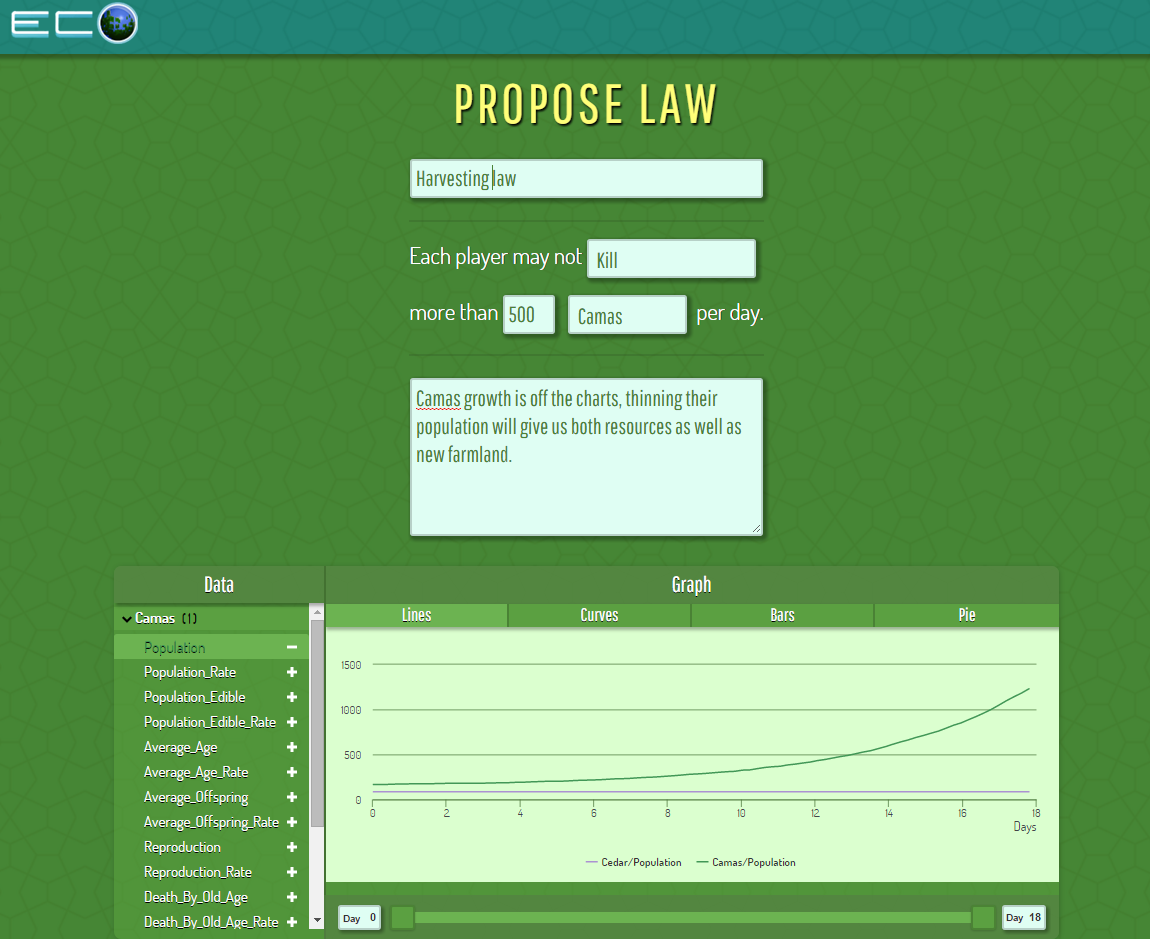
These penalties can vary widely, from a fine, to suspension, to jail time, all the way up to the death penalty (character perma-death). Once captured, criminals will be subject to the penalties outlined in the law they broke. Tracking skills can be used to find the criminal, and even when logged off criminals can be vulnerable to capture. Players can use skills for forensic evaluation to determine who broke into a house, who hunted illegally, who attacked another player. Once flagged and witnessed, a criminal can be arrested by anyone on the server who subdues them.


Instead, the server will allow players to break laws, but flag the perpetrator as a criminal. The initial system will physically enforce laws, but with this change that will cease to be the case. That is our PvP system.Įverything above describes our initial release of Eco, but what we hope to do (if we achieve our stretch goals) is to extend this by allowing laws to be broken. Data is your weapon, debate is your skill at wielding it, and the public forum of a virtual government is your battle arena. On each law, a discussion is started, and players can add their own statistics and graphs to refute or support your argument and conclusion about what should be done. I can imagine that players whose in-game livelihoods depend on taking resources from the environment may deny problems even exist, potentially until the point that they reach catastrophic levels. You’ll have to convince a skeptical player base of your proposed course of action, a collection of players that all have different specialties and incentives in the game and while they theoretically all have the same goal of surviving, each will posses different ideas about what should be done. To achieve this, you’ll need to back up law proposals with scientific data, graphs and argumentation. However it’s not enough to simply determine for yourself what is happening within the ecosystem and what must be done about it, you must convince a majority of players to agree with you if you want to pass any laws that might affect it. Statistical investigation is a weapon you wield in Eco, and the resulting knowledge is valuable, because you need it to make decisions. Is the drop in elk population caused by or merely correlated with logging rates? How costly is the effect of the new mine’s pollution levels on the surrounding farms? In Eco success depends entirely on your ability to function within a simulated ecosystem, but the workings of that ecosystem are not obvious presented facts (there is no ‘ecosystem health bar’), and players must figure it out for themselves using the tools of investigation the game provides. It is through this system that players can begin to illuminate the complex interactions that are happening in the ecosystem, making conjectures about the causes and effects they’re seeing, and arguing it with their fellow citizens.

Once this data is collected, any player can use it to create graphs and visual representations.
Players will be able to gather data in the world (like population growth/decline per species, hunting rates, pollution levels over time, and many more) by using special data-gathering objects they place in the world. When a law is proposed, players will be required to fill in an argument for it, and that argument can contain scientific data about the world, taken directly from the simulation.


 0 kommentar(er)
0 kommentar(er)
